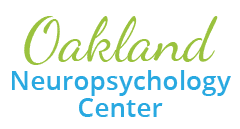Have you ever asked yourself “Why did I come into this room?” or “What was the name of that actor?” and wondered why the answer didn’t come to you right away? These are common experiences that come with age, and people often question whether they have memory problems or early stages of dementia.
Memory is actually quite complicated as there are various types of memory such as memory for things you hear vs. memory for things you see. In addition, in order for us to remember something, several steps need to take place, and when one stage is interrupted or dysfunctional, we may not be able to remember it at a later time. That is, in order for us to remember something, we need to first ‘pay attention’ to the information we want to remember, encode information into our mind or brain in an efficient manner, hold on to or retain the information over time, and then ‘retrieve’ it when we need it. Therefore, when we experience memory recall failures, it could be due to one or more of these stages being interrupted in some way.
When one is concerned about memory, a neuropsychological evaluation can be helpful in determining the reason behind one’s memory challenges. For example, conditions like ADHD can impact one’s ability to attend to the information and organize it efficiently for later recall, but other factors such as depression, anxiety, sleep deprivation, fatigue, pain, and medical conditions can also impact the initial stages of memory encoding. With aging, conditions like Alzheimer’s disease can impact one’s ability to store the learned or encoded information, resulting in memory failures. Memory decline can certainly be a part of normal aging, but sometimes it gives people peace of mind by checking their cognitive health through a neuropsychological evaluation. If this is something you are considering or interested in for yourself or a family member, please contact our office to obtain more assistance about scheduling an appointment with Dr. Lee Kim.
written by Dr. Jin Lee-Kim



